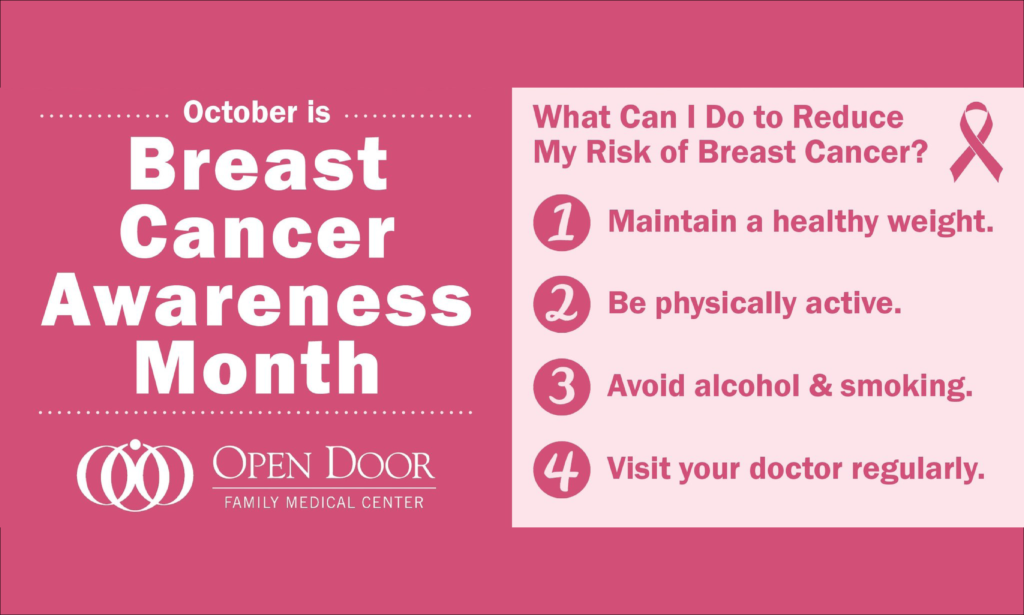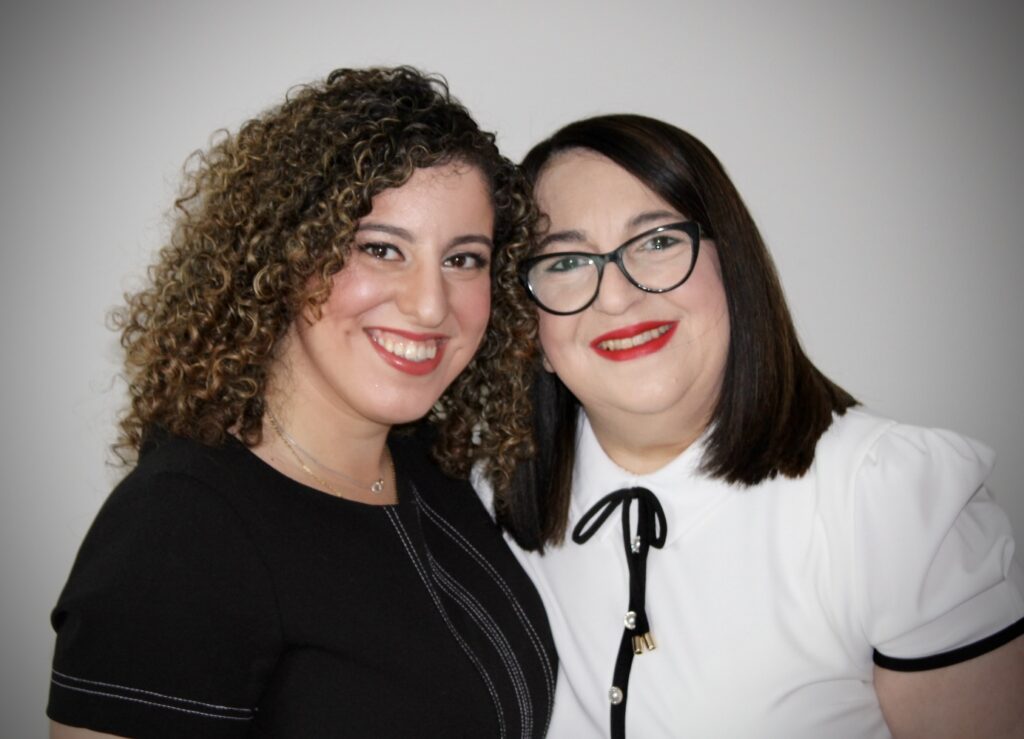Early diagnosis saves lives.
This mantra is heard throughout the year, but particularly in October during Breast Cancer Awareness Month.
Patient advocates at health centers like Open Door Family Medical Center make it a point to remind their patients of the importance of regular screenings, as many breast cancer symptoms are invisible and not noticeable without a mammogram.
“Our patient advocates educate on the importance of self-breast exams, clinical breast exams, and mammograms, but it’s a challenge,” said Andrea Ruggiero, Executive Vice President, Community Health at Open Door. “Putting off screenings because of fear of being diagnosed with breast cancer, unfortunately, is not uncommon. In addition, many of our patients fear giving out too much information about themselves. Since the pandemic, those fears have only magnified, as many patients have been reluctant to leave their homes and come into a medical facility for any reason.”
During the 18-month period from January 2021 – July 2022 more than 600 Open Door patients tested positive for breast cancer, at least some of whom may have delayed diagnosis and treatment.
The reach of breast cancer in the U.S. is staggering – one in eight U.S. women will develop invasive breast cancer over the course of their lives. It is the most commonly diagnosed cancer outside of skin cancer – and the second most fatal cancer to women, after lung cancer. In 2022, according to the American Cancer Society (ACS), an estimated 290,560 new cases of invasive breast cancer are expected to be diagnosed in the U.S. along with 51,400 new cases of non-invasive breast cancer. Furthermore, it is estimated that 43,780 people will lose their lives to metastatic breast cancer.
When breast cancer is detected early, and is in the localized stage, the 5-year relative survival rate is 99%. Early detection is possible with monthly breast self-exams and scheduling regular clinical breast exams and mammograms.
Women aged 50 to 54 years should be screened with mammography annually, according to the ACS. For women aged 55 years and older, screening with mammography is recommended once every two years or once a year. Women with family histories are encouraged to begin having regular screenings earlier.
“We support our patients through education so they can understand the resources that are available and the importance of cancer screenings, regardless of their insurance eligibility,” said Ruggiero. “In 2019, we started a cancer support group in Spanish because of the lack of such services in the county. During the height of the pandemic, the group went virtual and has remained virtual due to our patients’ preference”.
According to Karen Ganis, Director of Cancer Services at Open Door, “The sooner you are screened the earlier they can catch something when it’s still treatable. A mammogram may be uncomfortable, but it’s 30 seconds that can save your life.”




